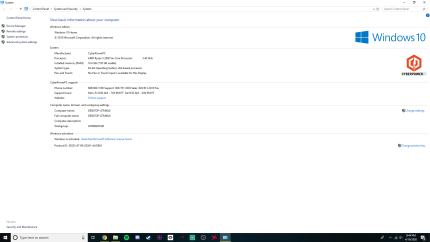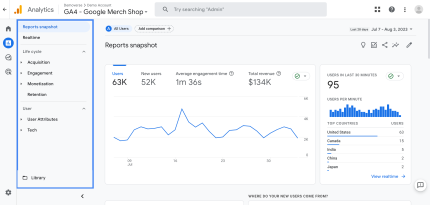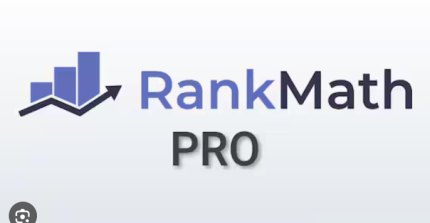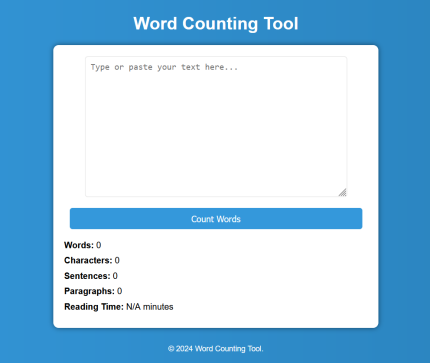The world of tech keeps changing, and Java is still a big deal. It’s known for being versatile, strong, and working on many platforms. We’ll look into Java’s future, seeing how it will keep up and grow in 2024, 2025, and later.

Java is used a lot and helps make many kinds of apps, from big business software to mobile apps and big data tools. It’s a key tool for developers and IT folks. As tech needs get bigger, faster, and safer, Java will keep getting better to meet these needs.
Java will keep getting better to meet these needs.
A futuristic robot hand holding a glowing Java logo, surrounded by floating code and binary digits, against a backdrop of futuristic technology.
Key Takeaways
- Java’s enduring popularity and relevance in the tech industry
- Advancements in Java development tools and frameworks
- Java’s versatility in powering a wide range of applications
- Emerging trends and opportunities for Java developers
- Java’s competitive advantages and challenges in the programming landscape
Java: The Enduring Powerhouse of Programming
Java has been a top choice in programming for many years. It’s used everywhere, from big projects to small ones. Its ability to work well in many places has made it a favorite among developers.
Java’s Ubiquity and Versatility
Java is used in many areas, like making apps, games, and websites. It works well on different platforms and can handle big projects. This makes it a top pick for developers.
Java can do many things, from coding to working with data and databases. It keeps up with new tech trends, making it a key player in the industry.
Advancements in Java Development Tools
Java has grown thanks to better development tools. Tools like IntelliJ IDEA, Eclipse, and NetBeans offer great features. These help Java developers work faster and more efficiently.
Java also has many libraries and frameworks. These help developers solve complex problems easily. Tools like Spring and Apache Spark make big tasks simpler.
| Java Development Tool | Key Features |
|---|---|
| IntelliJ IDEA | Advanced code completion, refactoring, and debugging tools |
| Eclipse | Comprehensive IDE for Java development, with support for plugins and extensions |
| NetBeans | Integrated version control, code analysis, and visual design tools |
“Java’s endurance as a programming language is a testament to its adaptability and the ongoing efforts to enhance its development tools and ecosystem.”
Learn Java From Udemy
Emerging Trends and Opportunities for Java Developers
The tech world is always changing, and Java developers are ready to grab new trends and chances. They’re seeing more demand for Java skills in cloud computing and big data. Java is still key in making big applications for companies, making the future bright for those who know it well.
Cloud computing is getting more important, and Java is right at the center. Companies are moving to the cloud, and they need Java experts. These experts can make apps work well with cloud platforms. Java is great for cloud work because it’s strong, can move easily, and has a big community supporting it.
Big data is growing fast, and so is the need for Java developers. They’re looking for people who can use Java to work with big data tools. Java’s strong data handling and its work with big data tools are very valuable in the tech world.
- Capitalize on the rising demand for Java skills in cloud computing and big data
- Leverage Java’s versatility and robustness to excel in enterprise application development
- Stay ahead of the curve by exploring emerging technologies and frameworks that complement Java
Java keeps changing and adapting, offering endless chances for skilled developers. By keeping up with new trends, you can be a top choice in the tech world. This opens up a world of new coding and IT jobs chances.
A futuristic landscape with various abstract shapes and colors representing the evolution of Java programming language.
| Emerging Trend | Opportunity for Java Developers |
|---|---|
| Cloud Computing | Develop cloud-native applications and integrate Java with cloud platforms |
| Big Data | Leverage Java’s data processing capabilities in Hadoop and other big data frameworks |
| Enterprise Applications | Maintain and enhance Java-based enterprise software solutions |
Java programming language: Embracing Modern Paradigms

The java programming language keeps up with new tech changes. It now includes modern programming ideas, like functional programming. This has become very popular lately.
Functional Programming with Java
Java now has features like lambda expressions and method references. These let developers write code that is shorter, clearer, and easier to keep up with. This move to functional programming in java has made solving complex problems easier.
It lets developers use things like data that can’t be changed, functions that take other functions as arguments, and working in parallel. This makes coding more efficient.
Java’s Role in Cloud Computing and Microservices
Java is also getting better at cloud computing and microservices. It’s great for making cloud-based apps and microservices because it’s flexible and has a lot of tools and libraries. Developers can use cloud services like serverless computing and managing containers to make their apps work better.
Java keeps getting better and is keeping up with new trends. It’s good at using new programming ways and working with the cloud and microservices. Java is still a top choice for skilled coding experts.
A cloud-like shape formed from a blend of modern and traditional Java programming concepts, with hints of futuristic technology incorporated.
Java’s Competitive Landscape: Challenges and Advantages
Java is up against tough competition from languages like Python and C++. It’s still a top choice, but knowing where it stands is key. Let’s look at the ups and downs Java faces when compared to these rivals.
Comparing Java to Python, C++, and Other Languages
Python is getting more popular, especially in data science and machine learning. Its easy-to-read code and lots of libraries make it a favorite for many. But Java keeps winning with its strict typing, fast performance, and support for big projects.
C++ is great for detailed control and speed. It’s perfect for system-level tasks. But Java beats it in web development, mobile apps, and cloud work with its ease of use, memory handling, and security.
| Language | Strengths | Weaknesses |
|---|---|---|
| Java | Enterprise-level supportPlatform independenceRobust security featuresVast ecosystem of libraries and frameworks | Steeper learning curvePerceived as less flexible than other languages |
| Python | Simple and readable syntaxExcellent for data science and machine learningExtensive library support | Slower performance compared to Java and C++Limited support for large-scale enterprise applications |
| C++ | Low-level control and performanceVersatile for system-level programmingWidely used in game development and high-performance computing | Steeper learning curveMore complex memory management compared to Java |
Each language has its own good and bad points. The right choice depends on your project’s needs, your team’s skills, and your goals.
“Java towering over a diverse landscape of programming languages, symbolizing its continued dominance in the industry”
Knowing the competition and the pros and cons of Java helps you make smart choices. This way, you can use Java, Python, C++, coding, and DSA with confidence as they change.
Java’s Impact on Enterprise Applications and Big Data
Java is a key player in the tech world, especially in enterprise applications and big data. It helps businesses work better and use data to make smart choices. Java is known for being strong, reliable, and having a big community of developers.
Java is great for making big applications that are used in many areas like banking and healthcare. It’s secure and works well with different databases and frameworks. This makes it perfect for building important systems.
Java also plays a big part in big data. It helps with processing, storing, and analyzing big data sets. Tools like Apache Hadoop and Apache Spark use Java to help businesses find important information in their data. This helps them make better decisions and grow.
Java’s future looks bright in the world of enterprise applications and big data. It will keep evolving and adapting to new tech. Java experts will be in high demand, helping businesses change and grow digitally.
| Feature | Java’s Advantages |
|---|---|
| Enterprise Applications | Robust, secure, and scalable solutions for mission-critical systems |
| Big Data | Powerful tools and frameworks for data processing, storage, and analysis |
| Developer Demand | High-in-demand skilled Java developers with expertise in coding, SQL, and big data |
A futuristic cityscape with towering buildings made of Java code, surrounded by streams of data flowing through the streets like a digital river. Sparks of light dance and flicker across the skyline as the enterprise applications powered by Java hum with activity, managing and analyzing massive amounts of big data in real-time. A sense of dynamic energy permeates the scene, evoking the cutting-edge technology and innovative solutions that Java brings to the world of enterprise and big data.
The tech world is always changing, and Java’s role in enterprise applications and big data will grow. By using Java’s strengths, businesses can stay ahead and keep up with the digital world. This will help them compete in the changing tech landscape.
Conclusion
The future of Java looks bright as it keeps up with tech industry changes. It’s a versatile language that offers great career chances for skilled coders and IT pros. If you’re into Java, your skills will be needed for a long time.
Java is still key in the tech world, even as things change. It’s behind many apps and helps drive new ideas in different fields. Learning Java can open doors for you in the tech world.
Keep up with Java’s new features and trends to succeed in tech for the long run. With the right skills and a love for learning, your Java knowledge can lead to a fulfilling career in IT.
- Role of internship in IT Sector: Launching Your Tech Career
- Preparing for Your IT Dream Job: Essential Steps
- BCA Full Form, Course Details, Syllabus: Degree Program Overview
- Future of Java programming language in2024, 2025 or later
- DAY #1 -Java Basics You Must Know
FAQ
What is the future outlook for the Java programming language in 2024, 2025, and beyond?
Java has been a big deal in tech for years. It keeps getting better to meet new needs. This means Java will stay important in 2024 and later.
How has Java maintained its ubiquity and versatility in the programming world?
Java is everywhere because it’s so useful. It works in many industries and does lots of tasks. From big software to data projects, Java is a top pick for developers.
What advancements in Java development tools are enhancing the language’s capabilities?
Tools for Java development keep getting better. Things like IDEs, build tools, and testing frameworks make developers more efficient. These tools support new ways of programming and new tech.
What are the emerging trends and opportunities for Java developers in the tech industry?
New trends are coming up in tech, offering chances for Java developers. Cloud computing, big data, and enterprise apps need Java skills. Staying current with these trends can help developers grow their careers.
How is Java embracing modern programming paradigms like functional programming and supporting technologies like cloud computing and microservices?
Java is changing to fit new ways of programming, like functional programming. It also supports new tech like cloud computing and microservices. This keeps Java relevant in tech.
How does Java compare to other programming languages like Python and C++, and what are its competitive advantages?
Java is up against languages like Python and C++, but it has its strengths. Its strong typing and support for big projects make it popular for certain tasks. This is why many developers choose Java for certain jobs.
What is Java’s impact on enterprise applications and big data?
Java is key for big projects and handling lots of data. It’s great for complex systems and big data tasks. As these needs grow, Java will keep being important.



























